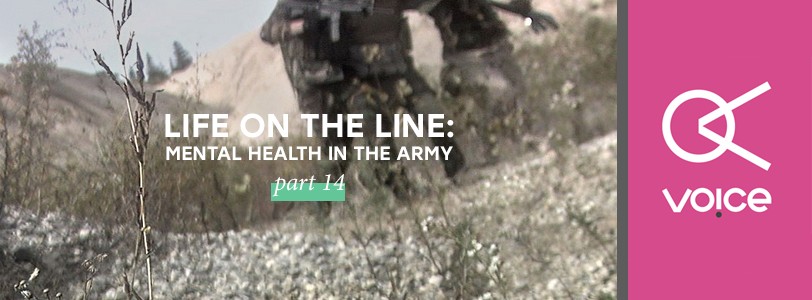I walked out of my medical board assessment feeling numb. What the fuck had just happened? Was this real? I had to sit down with one of the women of the office there and complete some paperwork. We were chatting about what was the next stage, and what I had to do. Then I said it. 'Discharge.'
It was like a punch to the stomach, I bent in two and began to sob. What the fuck!? I don't cry generally. It's not some Macho bravado, it's just not something I do, yet there I was breaking down. I'd not cried like this since I'd been thrown out by my ex-wife. After I'd stopped crying, it was advised I went over to the mental health team nearby and ask to speak to the social worker. There were things I had to get underway. I was asked where I was up to with my CRE courses, but of course I hadn't heard of them. I was sent over to the centre where the CRE courses happen, trying to get one booked, but I wasn't allowed to book a course because my details had not been put on the system that would grant me access to the courses I should have already done. My unit was supposed to have sorted this out and get me booked onto the courses months ago.
The woman working there was very understanding, she gave me the details of the first course and a list of the dates for the other courses coming up for the next few months. However, she emphasised that I needed to be on the system before she would be able to get me on the course. This was still very much a time of shock for me, and taking all this in wasn't easy.
The next day I went in for the first time wearing my own clothes. I had to hand in the paperwork, but the people who could action said paperwork weren't available. I went to my boss at the time and explained what had happened, that I was supposed to be on the computer system and I was stuck in limbo. He made a few calls and got me onto the computer system, it was a start. Between us we then got the course booked, first step underway.
Next thing I had to do was arrange a briefing regarding my entitlements and how I get resettlement courses arranged as a discharged soldier. I went in to hand over a few documents that were on my desktop and sort out my desk. My supervisor wasn't understanding when I explained that I wasn't allowed to do any work. She was after me finishing off a monthly report that would mean me doing a couple of hours. I politely declined, emailed her what I had of the report and walked out.
I attended the briefing for my entitlements in a daze a couple of days later, and wasn't really taking it in. I was still in shock at the life changing news I'd recently had. My state of mind was probably best described as fragile. I was simply floating through the meeting, and figured that it would work out somehow. What I wasn't made aware of until this point was that the resettlement courses have quite a waiting list. This would later mean I was unable to take any conventional resettlement courses, owing to the shortened timeframe discharged people are given. In my case it was just over six months.
Shortly after, I started throwing myself into the CRE courses. Covering a multitude of life skills that range from the useful to the questionable, as well as job related topics such as filling in application forms and creating a CV. It was here I began to meet a lot of other folk for who various reasons had also ended up being medically discharged. That was really the most useful part; networking with other broken people, learning and sharing inside tips on how to get this discharge bit working right.
It was here that it became obvious that the military had no cohesive way of dealing with mentally ill people in the workplace. Some departments had it right and were doing great work in allowing their affected staff to carry on being productive; other people got nothing but derision from their colleagues. Worse still, some felt their bosses took the illness of another human being as a personal slight. Some folk had been sent home months ago, then were expected to make at short notice journeys of often hundreds of miles, when their medical situation made it unadvisable to drive; and the reason? To sign a form that could have just as easily been dealt with by email. It was here that, despite all the fuckups, I came to realise I wasn't doing so badly after all.









0 Comments